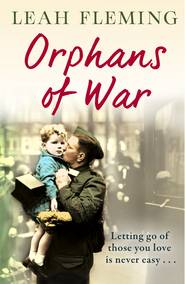По всем вопросам обращайтесь на: info@litportal.ru
(©) 2003-2025.
✖
Remembrance Day
Настройки чтения
Размер шрифта
Высота строк
Поля
‘You won’t. That’s why they drill us to make sure it’s second nature. I don’t suppose there’s time to think in the thick of it,’ Guy added.
‘I wish we could have a rehearsal and try it all out first, get used to the noise and the smells, don’t you think? Exercises and manoeuvres are all very well but I don’t want to make an ass of myself in front of my men. I’ve never seen a dead man in battle. What if I funk it?’
‘Any more headaches?’ Guy asked; a coded reference to Angus’s fitting episodes.
‘No, fit as a fiddle. I reckon it’s all behind me now, thank God. I don’t fancy missing the show now it’s really getting going. Can’t wait.’
Guy hoped his brother was telling the truth. But still he was uneasy.
You’re getting as bad as Mother, Guy mused. Enjoy this family time. Only God knows when we will all meet up again.
The Bartleys were enjoying having Newton home and Frank returned to the fold from his barracks, resplendent in their uniforms. Essie was fussing over them, while Asa muttered he could do with a hand in the forge.
‘If I’d known they were coming together I’d’ve done some more baking,’ Essie said as she beat sugar and butter into a bowl to make a sponge cake for the school concert that evening.
‘I’d like to make some cinder toffee,’ Selma asked. ‘So we can sell it for the Princess Mary’s Soldiers’ Fund. The boys can take some back with them.’ She was so glad to see her brothers back, all the family together. Aunty Ruth and Uncle Sam were coming on the train from Bradford. It would be like old times. If only her father would cheer up and not bang around muttering to himself.
He’d taken Frank’s leaving as a desertion. Selma’d never seen him take on so. Now he mumbled, ‘I doubt it’ll be a picnic out there…I’ve got a bad feeling about it all. It just don’t seem right to be fighting other Christian folk. How can the Lord be behind the both of us? It don’t make sense. Frank’s nobbut a milksop with hardly hair on his chest yet, but I’m the last one as any will listen to in this house these days. He should be here by my side, learning his trade.’
‘Now don’t go on, Asa, getting yourself worked up about what can’t be changed,’ Mam was quick to silence him. ‘Don’t spoil their leave. I’m so proud of the both of them.’
‘But they don’t know what they’re letting themselves in for. They’re too young to be let loose on the battlefields. Now I’m wondering if I ought to volunteer myself to keep an eye on them both.’
‘At your age? Don’t be so daft. You’ve got your work here.’ Selma heard fear in her mother’s voice.
Alone in the kitchen, she pulled out the little iron pot they kept for toffee making, gathering the ingredients, measuring the butter and sugar, bicarb of soda at the ready. Everything was spick and span for Aunty Ruth’s visit, brasses shining, fire high, table laid. Having company to visit was a highlight, war or not. There was always a welcome for an honoured guest.
She smiled, thinking of Guy’s last letter filled with his trip to London, the shows and musical concert and visit to an art gallery. His world was so different from her own. They didn’t have to scrimp and save for every little treat. Lady Hester bought whatever took her fancy but Selma wouldn’t swap her family for his starchy one any day.
Tonight her little pupils were going to bring the house down with their drilling and marching antics. The school hall would be packed out and she would be showing off her soldier brothers in uniform. Marigold Plimmer would be making eyes at them; all fluttering eyelashes and simpering little laughs at their jokes but for once, Selma would not begrudge them this attention.
She would write to Guy describing all the details of the fundraising concert and the latest news from West Sharland.
Dearest Guy, she composed in her head, wondering what he looked like in his smart uniform. Are you coming home for Christmas or staying in London? Will we be able to go riding on Jem again? I’m busy with my pupils, dressing them up like soldiers, but I can’t get them to march in step. Frank and Newton are here. I do miss you…Then the smell of burned sugar hit her nostrils.
Frank and Newt were laughing in the doorway. ‘Dolly daydream, wake up, your pan’s on fire!’
Liquid toffee spurted over the pan top. The mess was everywhere. Frank went for the water jug and before she could stop him he flung it on the mixture and it exploded in all directions, splattering the range, the clean tablecloth, every nearby surface.
‘What did you do that for, you dozy brush?’ Selma yelled. She cried tears of rage, trying to wipe up the gunge. The molten toffee was solidifying fast.
In the end it took hours, scouring bits of toffee off the floor and the walls, the boys laughing at her all the while. She was furious with them but most of all herself. What would Mam say about that sickly smell of burned sugar, and her wasting all that precious food? And all because of Guy…
Ever since then just the smell of burned sugar or caramel transports me straight back to that afternoon. There should be an orchestra playing in the background, a soundtrack to such special moments as these. How can a scent open the floodgates of memory to a time and a place so fixed in your heart when your history was in the making?
If only we’d known how precious those few evenings were in the autumn of 1915, when we all gathered for a singsong round the piano, walked over the Ridge to watch the last of the autumn leaves painting the trees, me arguing with my brothers, as we always did about whose turn it was to do the washing up? Then I stood on the platform of Sowerthwaite station waving them off as if we had all the time in the world, as if our lives were secure and unchangeable. If only we knew things in advance…
Halcyon days, poets call them, those days of calm before a storm. Now I have little sense of smell with which to taste or enjoy food, but still in my dreams I can recall that scene as if it were yesterday: Newt and Frank on their hands and knees scrubbing for dear life while I brushed the blacking on the grate and tried to hide the evidence, all to no avail. I got such a rocket from Mam for wasting precious sugar and there was no cinder toffee to put in their knapsacks. I sent them on their way to war empty-handed. It still breaks my heart to think how unprepared we all were for what was to follow.
6 (#ulink_5a8fe8ca-e88e-5f32-9abb-c270510bda3b)
1916
Hester felt proud of her effort. A thick bowl of broth, with mutton bones, pearl barley, vegetables chopped and lots of salt and pepper. They were having a penny dinner in the church hall to raise funds for the new Women’s Institute. To her surprise she quite enjoyed getting stuck in, wearing a long white apron and a lace-edged cap, while Violet Hunt chatted away about all the things this new society might do to help the war effort.
‘We need a committee and you must take the chair, of course, Lady Hester. There are groups springing up all over the district. It’s all very exciting.’
Violet was becoming a staunch ally and, for a vicar’s wife, most liberal in her views. It was she who suggested it might be politic to invite the chapel women. This was an interdenominational institution, after all, open to all women, married or single, and a splendid way of galvanising all their working parties into one big effort. Instead of lots of separate meetings in order to publicise all the new directives from the government about saving fuel and food and equipment, they were going to pass on useful tips and skills. It would give the wives of soldiers something to occupy their evenings after an outbreak of khaki fever in the district and some unfortunate incidents between visiting soldiers and local women.
Hester stirred the soup pan, sniffing the delicious aroma. Who would’ve thought a year ago she would have to cook some of her own meals, tidy her own room, see to some of her mending and, her most daring venture to dare learn to ride a bicycle.
Cycling up and down to the shops with her basket was most invigorating in the fresh air, and once or twice on a bright day she’d ventured further afield, shortening her riding skirts to prevent them catching on the chain. Sometimes down the green lanes with stonewalls enclosing her, she heard the curlew bubbling over the fields as she watched the lambs gambolling, almost forgetting that there was a war on. It was all so peaceful and serene. It was impossible to contemplate that five hundred miles away young men were being killed.
She was getting used to the boys being away now, believing Charles when he’d said that they’d not be shoved across the Channel without proper training. Their letters were brief chatty notes full of a world she hardly knew these days. Hers in return were full of how war was changing her domestic life, how the village community responded to the sad news of boys who would never return home. She told them about Violet’s new idea to form the Women’s Institute like the ones set up in Canada, which her sister had joined.
But the casualty lists were never far away from everyone’s mind. Charles hinted that there was a big push coming when the weather faired up; a push in which her sons would surely be involved. The French were taking a pounding, holding their forts at Verdun against terrible odds and suffering atrocious bombardments, so the paper said.
Keep busy and don’t think too much was her maxim now. Fill every day with things to do, shore up the gaps with busyness. The garden was turned over now into one big allotment, and potatoes chitted and planted before the ninth of April, the traditional date for planting here. She’d been on her hands and knees with the best of them now she was down to just one old gardener. Everything was dug over except her rose bed.
There had to be some vision of colour and hope to look forward to, she sighed, noticing, as she returned to her morning room, the postman cycling up the drive. As she saw him pull out a telegram from his bag, she went cold.
Hester made for the drive to meet him. It took every ounce of courage to look nonchalant. Old Coleford, seeing her anxiety, waved the paper jauntily in the air.
‘Nowt to worry about, your ladyship. ’Tis only from yer son…’
She could feel the weakness of relief seeping into her limbs. It was all she could do not to snatch the paper from his fingers but she stood nodding politely.
‘Thank you, Coleford,’ she managed to say, before taking it to the bench against the south wall, and tearing it open with shaking fingers: ‘Meet me at the station. The four o’clock train. A.’
What a relief. Angus was home on leave!
The news sent her into a flurry of flower arranging, lists for Beaven the coachman to do, engagements to cancel, sending the relief maid upstairs to air his bed. There was a menu to shop for. Angus was coming home. It was going to be just splendid!
The train was late and she was miles too early. Beaven had brought her down in the pony and trap, knowing she was impatient to be on the platform as the steam train chugged slowly into the station. The porter was hovering and the stationmaster fussing with his watch and chain.
Then doors clanged open to disgorge scruffy soldiers, unshaven, weary-faced, in muddy uniforms with kitbags on their shoulders. Boys who had travelled for days to snatch a few hours with their families on leave. Some fell into the waiting arms of their womenfolk. They all looked exhausted.
Then from the first-class compartment she saw Angus step out slowly but not in his uniform, looking ordinary somehow in a long tweed coat, carrying a suitcase. How strange. He was shuffling along like an old man and, to her horror, leaning on a walking stick.
‘Angus, darling! What a surprise!’ Hester smiled, reaching out to greet him.
‘Not now, Mother. Let’s get out of here.’ He didn’t look her in the face but shuffled over the railway bridge and out through the station gate into the trap, pulling his trilby over his face. He didn’t speak all the way home, but sat sullen, staring out into the dusky night.
Hester could hardly breathe with the shock. What on earth was going on?
Once through the hall, Angus plonked his case down and went straight to his room. She followed him up slowly, fearing the worst. Had he been cashiered out of the army for a scandal, failed his examination, found wanting in leadership? What had Angus been up to and why had Charles not warned her of this disgrace?
Opening the door, she found her son sitting on the bed, sobbing, shaking with distress like a little boy.










